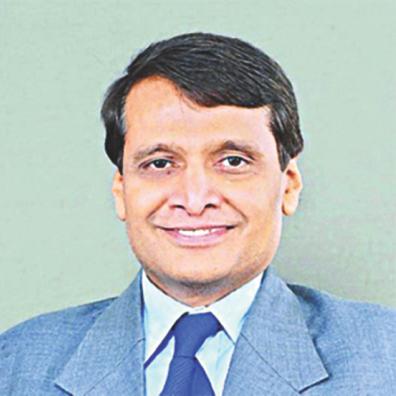Comprehensive Economic Partnership Agreement to top agenda

Dhaka and New Delhi will look to heighten the possibility of signing the Comprehensive Economic Partnership Agreement (CEPA) between the two countries during Indian commerce minister's visit to Bangladesh starting today.
The anti-dumping and countervailing duties imposed on Bangladesh will also be high on the agenda during the four-day visit of Suresh Prabhu, commerce & industry and civil aviation minister of India.
“The two sides will discuss the CEPA,” said Md Shafiqul Islam, additional secretary to the commerce ministry of Bangladesh.
India wants to sign the CEPA to boost bilateral trade between the two countries. Last year, it proposed to ink the deal.
The duty issues may dominate the discussions as local exporters have been facing challenges after India imposed the anti-dumping duty of $19-$352 on jute and jute goods in January last year. New Delhi has imposed 12.5 percent countervailing duty on garment items despite allowing duty-free access to all goods from Bangladesh except some alcoholic and beverage items since 2011.
As a result, garment exporters are finding it hard to capture a larger share of India's $50 billion domestic apparel market.
Other issues that are scheduled to be discussed are the congestion at Benapole and Petrapole, which is hampering smooth transportation of goods, and setting up of more border haats. Currently, four border haats are in operations along the Indo-Bangla borders.
Withdrawal of port restrictions and development of infrastructures for several land customs stations on the Bangladesh side will also be on the agenda, according to the programme schedule.
Dhaka will also urge New Delhi to accept the certification of the Bangladesh Standards and Testing Institution (BSTI) on exports of goods to India, the commerce ministry official said.
Bangladesh's exporters face non-tariff barriers while shipping products to India and have to wait even for a few months to obtain the certification as most of the tests are carried out in Delhi, which is far away from Benapole and other land ports along the Indo-Bangla border.
Currently, India accepts the BSTI certification for 14 goods.
The balance of bilateral trade between the two countries is heavily tilted towards India as Bangladesh largely depends on Indian cotton, fabrics, machinery, chemical products, food items and industrial raw materials.
In 2017-18, Bangladesh exported goods worth $873.27 million and imported goods worth $8.61 billion, according to data from the commerce ministry.
It is believed that goods worth nearly $6 billion enter Bangladesh from India through unofficial channels every year.
